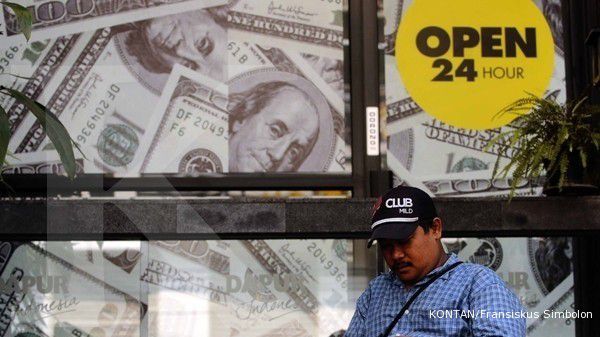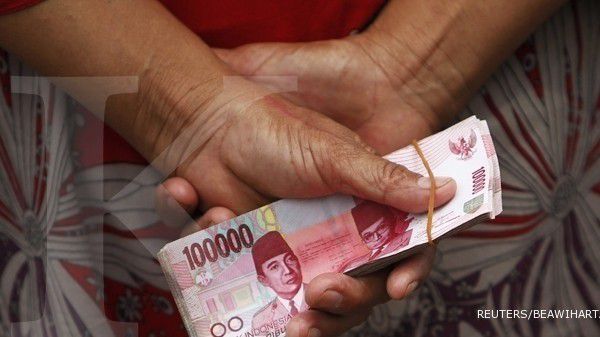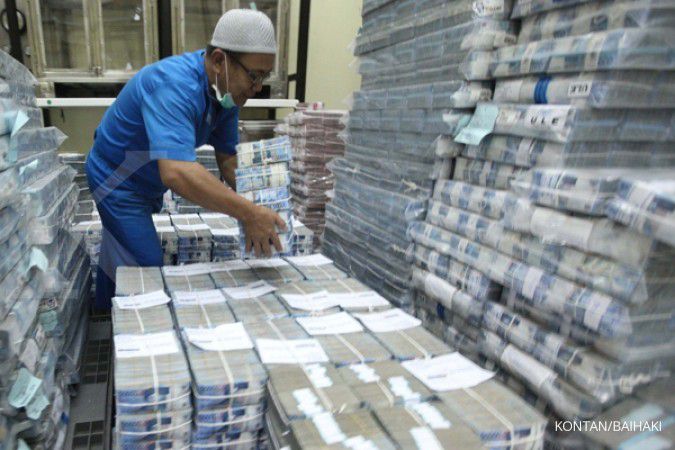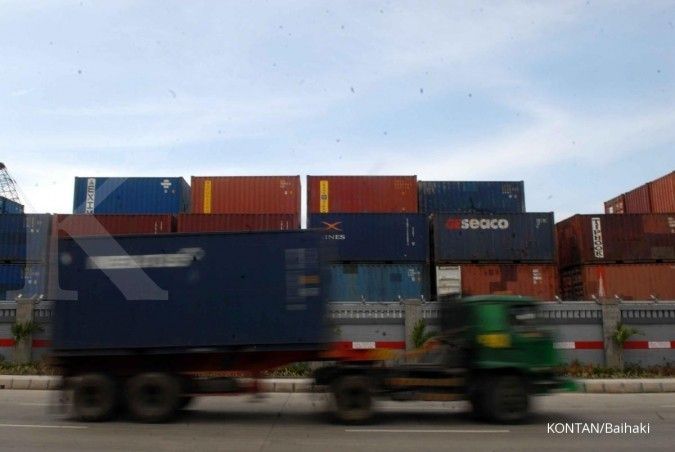JAKARTA. In order to boost the foreign exchange market in Indonesia, Bank Indonesia (BI), yesterday (1/4), established the Indonesian Foreign Exchange Market Committee (Indo FEMC).
The committee consists of BI, the Financial Services Authority (FSA), as well as associations such as the Association Internationale Cambiste Indonesia (ACII) and the Indonesian Bankers Association (IBI). The committee will soon issue guidelines for foreign exchange transactions for foreign exchange banks.
Central Bank Governor Agus Martowardojo said, the establishment of the Indo FEMC is one of the central bank's efforts to accelerate the deepening of the domestic foreign exchange market. So far, efforts to ask exporters to put the results of its exports to the domestic market have not been able to strengthen the domestic currency liquidity.
Based on data FEMC Indo, Indonesia's foreign exchange market is fairly thin compared to neighboring countries such as Malaysia and Singapore. Volume foreign exchange market transactions in Indonesia only reached U.S. $ 5.011 billion per day. Meanwhile, the Malaysia currency market has reached U.S. $ 11 billion. Singapore even has reached U.S. $ 383, 075 billion per day.
Unfortunately, Indonesia's foreign exchange market is dominated by spot transactions. Approximately 65% of foreign exchange transactions in Indonesia are a spot transaction. Foreign exchange spot market transaction volume reached U.S. $ 3.5 billion. Tirta Segara, Executive Director of the Department of Communications Bank Indonesia said that dominate spot market transactions could put pressure on the domestic foreign exchange market.
Hence, BI continues to request that businesses and consumers who need foreign currency to hedge. "Do not buy on the spot market, this puts pressure on the foreign exchange market," he told KONTAN (1/4).
The high spot market is a reflection that many entrepreneurs entering the forex market suddenly to find dollars. It's different if they were preparing dollars through forward or swap market, which makes foreign currency needs can be anticipated.
Thus, the central bank will continue to add to the forex market instruments such as swaps and swap hedging. Other instruments are dollar repo. "They can swap with repo transactions, when they need dollars," said Tirta.
BI along with the market players will formulate guidelines for foreign exchange transactions for foreign exchange banks, including foreign currency instruments for creating market needs.
span class="longtext">JAKARTA. In order to boost the foreign exchange market in Indonesia, Bank Indonesia (BI), yesterday (1/4), established the Indonesian Foreign Exchange Market Committee (Indo FEMC).
span style="background: white;">
The committee consists of BI, the Financial Services Authority (FSA), as well as associations such as the Association Internationale Cambiste Indonesia (ACII) and the Indonesian Bankers Association (IBI). The committee will soon issue guidelines for foreign exchange transactions for foreign exchange banks.
span class="longtext">span style="mso-spacerun: yes;"> br /> Central Bank Governor Agus Martowardojo said, the establishment of the Indo FEMC is one of the central bank's efforts to accelerate the deepening of the domestic foreign exchange market. So far, efforts to ask exporters to put the results of its exports to the domestic market have not been able to strengthen the domestic currency liquidity.
span class="longtext">
span class="longtext">Based on data FEMC Indo, Indonesia's foreign exchange market is fairly thin compared to neighboring countries such as Malaysia and Singapore. Volume foreign exchange market transactions in Indonesia only reached U.S. $ 5.011 billion per day. Meanwhile, the Malaysia currency market has reached U.S. $ 11 billion. span title="Singapura bahkan sudah mencapai US$ 383, 075 miliar per hari.
">Singapore even has reached U.S. $ 383, 075 billion per day.
span class="longtext">span style="mso-spacerun: yes;"> br /> Unfortunately, Indonesia's foreign exchange market is dominated by spot transactions. span title="Sekitar 65% transaksi valas di Indonesia adalah transaksi spot.">Approximately 65% of foreign exchange transactions in Indonesia are a spot transaction. Foreign exchange spot market transaction volume reached U.S. $ 3.5 billion. Tirta Segara, Executive Director of the Department of Communications Bank Indonesia said that dominate spot market transactions could put pressure on the domestic foreign exchange market. br />
Hence, BI continues to request that businesses and consumers who need foreign currency to hedge. "Do not buy on the spot market, this puts pressure on the foreign exchange market," he told KONTAN (1/4).
span class="longtext">
The high spot market is a reflection that many entrepreneurs entering the forex market suddenly to find dollars. It's different if they were preparing dollars through forward or swap market, which makes foreign currency needs can be anticipated. br />
Thus, the central bank will continue to add to the forex market instruments such as swaps and swap hedging. Other instruments are dollar repo. "They can swap with repo transactions, when they need dollars," said Tirta. br />
BI along with the market players will formulate guidelines for foreign exchange transactions for foreign exchange banks, including foreign currency instruments for creating market needs.
/2014/04/01/25646768.jpg)














